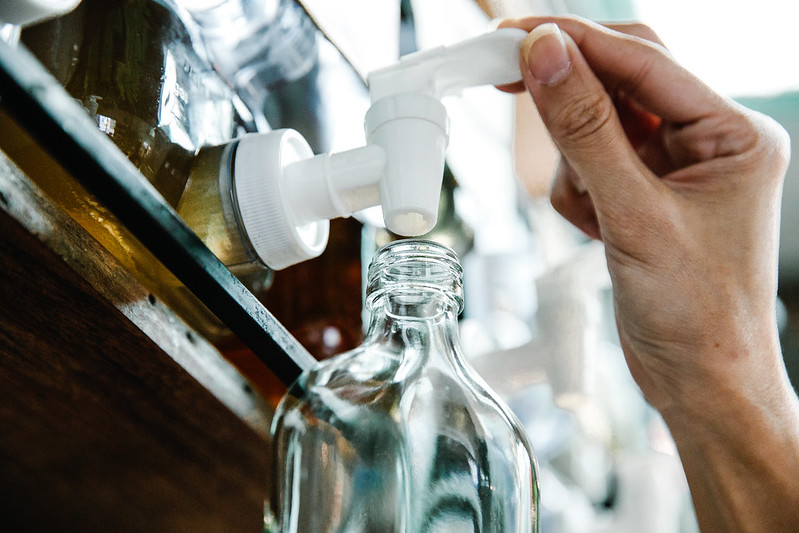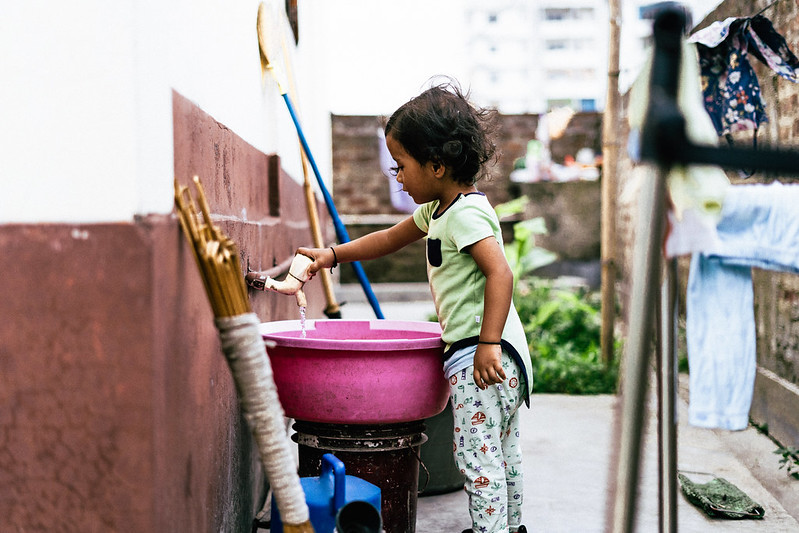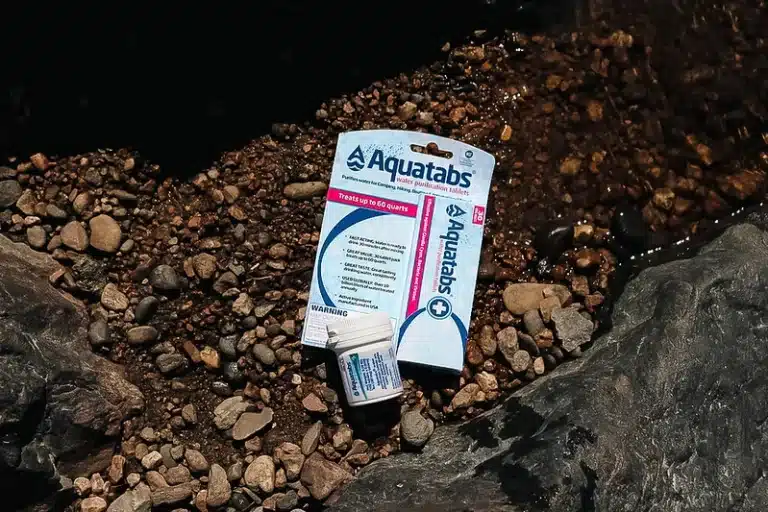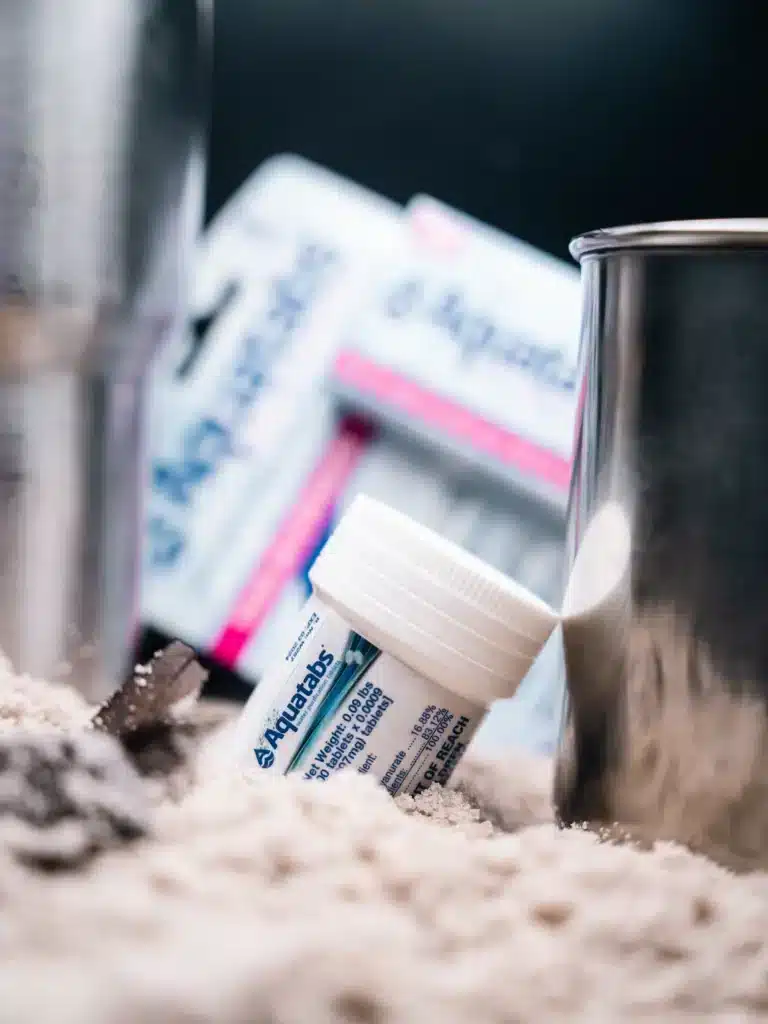Have questions? Call 1-833-BC-WORLD (1-833-229-6753)

Sustainable Water Usage: The Benefits of Eco-Friendly Living
By Grace Obeda
Reexamining freshwater Use
Only a small fraction of the world’s water is freshwater. A mere 3% of the Earth’s water is what all of humanity uses to drink, bathe, and irrigate its agriculture. Along with freshwater being in short supply, growing levels of contaminants and pollutants that render this water unusable have put our reserves at great risk. This, along with population growth, urbanization, and climate change has resulted in a dire need to reexamine our impact on local water systems.
Some 2.2 billion people worldwide lack access to safely managed drinking water, and an additional estimated 4 billion people experience water insecurity for at least one month out of the year as a result of these global trends. As we continue our freshwater consumption at unsustainable rates, these issues will only continue to grow and affect a greater number of people. A recent UNICEF report projected that severe water scarcity and insecurity will affect almost half of the global population by as early as 2025.
Knowing this, we realize how important it is that we examine our water use practices and implement sustainable water usage in our own lives. Doing so provides numerous benefits. Eco-friendly living in regards to water, saves money, and the planet.
What's Wrong With Our Water Usage?
The way we use water in the home today is simply unsustainable—and rather wasteful too. The U.S. has one of the safest drinking water systems in the world, and almost all water sources in U.S. homes are potable. This means that whether it be from the fridge, sink, shower, sprinklers, or the garden hose, it is drinkable. Even the water that is used to wash clothes is typically safe for consumption. Yet tons of this drinkable water goes to waste. When we take a step back and ask ourselves how we can live more eco-friendly lives, water conservation and implementing sustainable water usage practices in our daily lives stands out.
The Greywater Problem
Our plumbing systems generate water for all household uses from the same source. It then pumps this water runoff from sinks, showers, and toilets out of the home, regardless of its use. However, it’s not without reason that we’ve adopted this single-use water mentality. For example, there are certain risks when using untreated greywater to water the lawn or plants. A sprinkler system could make bacteria in greywater airborne and potentially harm the health of plants and people. Greywater is what results after you’ve used potable water. It is the runoff that is filled with detergents from dishwashing or laundry, and soap from your bath or shower. These contaminants, along with larger particles of dirt, skin, and bacteria create what we know as greywater.
Typically, the average plumbing system pumps this out of the home along with blackwater to be treated at a special facility. The national average water use per family is currently at 300 gallons every day. Knowing this, it might be time to take a closer look at how we’re using all that water. About a third of this water is dedicated to outdoor use. All that fresh, potable water, just for our lawns! But what if we could repurpose all that greywater that’s created from indoor use? What if there was a way to incorporate greywater into a family-unit model for sustainable water usage?
How To Recycle Greywater
With a few changes to your plumbing system, you can recycle this greywater, and reuse it. Greywater systems can simply re-route water to be used for toilet flushing, or they can filter greywater to be used for additional household needs. Once filtered, it is not always suitable for drinking, but it can be used for plant irrigation and is a great first step in sustainable water usage. In addition, this means that on average, families would save around 30 gallons every day in clean, potable water.
Filtration and Treatment
Implementing a water filtration device, or simply adding water treatment to your pre-existing plumbing system is your ticket to sustainable water usage and conservation. The great thing about greywater is that it’s not all that hard to filter. Even naturally occurring materials such as crushed corn cob and oleifera seeds have been successful in this filtration process due to their fibrous nature. However, if you don’t want to make your own filter, most filters equipped for whole-home use will work just as well.

Other higher-grade filters, especially when combined with water treatment, have the potential to recycle greywater into drinkable water. This is because water treatment can kill harmful microorganisms such as viruses that can pass through some filtration devices.
Benefits of Eco-Friendly Living
So how much really can a greywater system save you? A study conducted by the International Journal of Energy and Water Resources found that energy reductions for cold water use were as high as 30.6% and hot water reductions 58.2%. Additionally, incorporating a filter or treatment means that you can reuse about 60% of the water used for household needs. This comes out to roughly 65,000 gallons of water per American family each year. All this saved energy and water means huge savings on your bills. Greywater systems can pay for themselves in as little as two and a half years. Sustainable water usage via a greywater system is an incredibly efficient way to reduce your impact on already stressed local water reserves and save on energy and water bills. Living an eco-friendly life doesn’t have to be expensive or tedious.

Degrees of Sustainability
Sometimes we can feel as though the weight of the world is on our shoulders, and that it’s up to us as individuals to solve the world’s problems. Don’t buy single-use plastics, store your dry goods in mason jars, check your shampoo bottles for PFAS, buy organic, eat local, and the list goes on and on.
It can be overwhelming to try to overhaul your life and live 100% sustainably. Not to mention, a lot of these changes can be expensive and aren’t easily accessible to everyone. That’s why it can be helpful to look at it as degrees of sustainability. Implementing sustainable water usage in your life means you’re living a few degrees more sustainably. Adding an in-home water filter or treatment technology to recycle greywater helps your wallet and the planet.
Recent Posts
-

Hiking and hydration for hounds: hydration Tips & pet-friendly purifiers
July 11, 2025 UncategorizedThinking of hitting the trails this summer? What better way to enjoy an adventure than with your furry friends? Hiking with dogs is a great.
-

How to Use aquatabs for water purification while hiking
May 7, 2025 UncategorizedSo, you’re planning your next hike. You’ve got all the gear: your backpack, boots, binoculars—and Aquatabs to make sure you stay hydrated and healthy on.
-

How do Aquatabs Work? The Science Behind Water Purification Tablets
April 18, 2025 UncategorizedBy: Jessica Miller Aquatabs: a fast-working water purification tablet that everyone knows and loves. However, not everyone understands how this helpful little tablet works. There.
-

Aquatabs Celebrates Women’s History Month: Historic Female Adventurers
March 28, 2025 UncategorizedBy: Jessica Miller History is not recorded objectively. Rather, it is dictated by social standards and circumstances. Although these social standards are constantly moving and.
-

Love in Every drop: How aquatabs water purification tablets help protect what matters most
February 13, 2025 UncategorizedBy: Jessica Miller February is here and love is in the air! Congratulations to all for making it through the cold length of January! Whether.
-

New Year's Resolution: Drink More Water
January 10, 2025 UncategorizedAs we adventure into the New Year, make staying hydrated a top priority! Protect your health at the same time by ensuring your water is.
Recent Posts
-

Hiking and hydration for hounds: hydration Tips & pet-friendly purifiers
July 11, 2025 Uncategorized -

How to Use aquatabs for water purification while hiking
May 7, 2025 Uncategorized -

How do Aquatabs Work? The Science Behind Water Purification Tablets
April 18, 2025 Uncategorized -

Aquatabs Celebrates Women’s History Month: Historic Female Adventurers
March 28, 2025 Uncategorized -

Love in Every drop: How aquatabs water purification tablets help protect what matters most
February 13, 2025 Uncategorized -

New Year's Resolution: Drink More Water
January 10, 2025 Uncategorized

